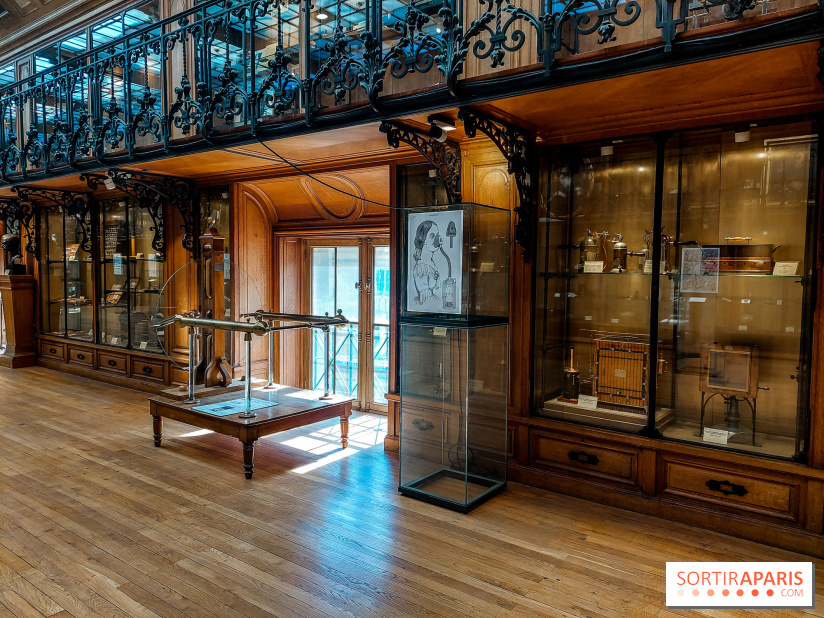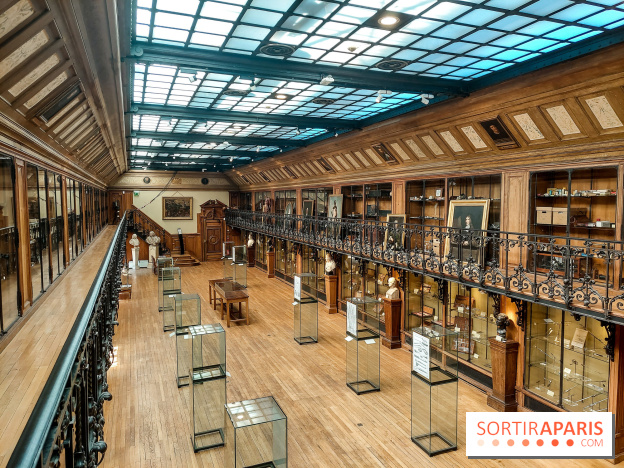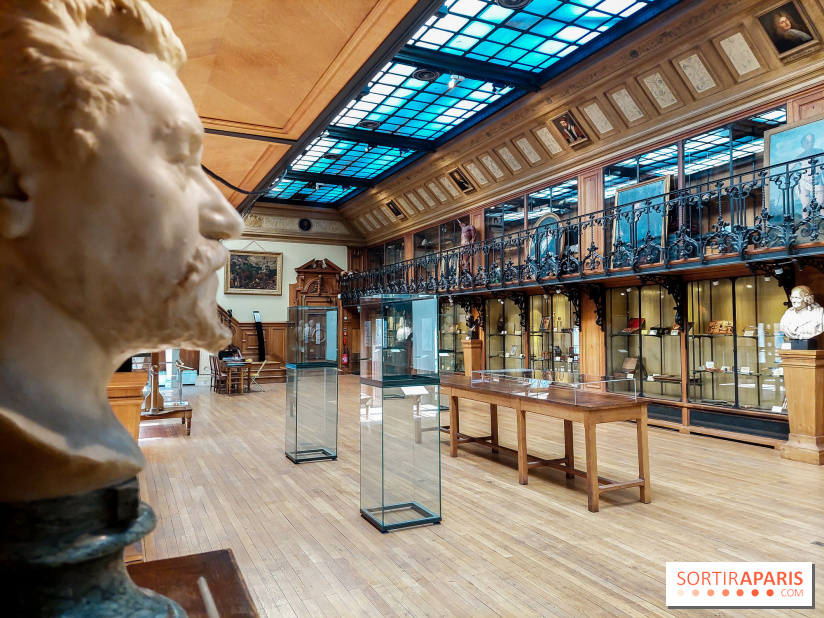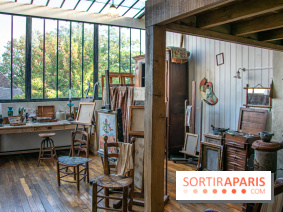You may not know it, but the headquarters of Université Paris Cité, located on the premises of the former Faculty of Medicine, a stone's throw from the Odéon metro station, is home to a fascinating place of curiosities. The only one of its kind, the Musée d'Histoire de la Médecine - for which Andréa Barbe-Hulmann is now responsible - was inaugurated in the mid-1950s. Initially intended for professors and students of the Faculty of Medicine, the museum only opened its doors to the general public in 1994.
Inside this sublime hall built in 1905? Showcases housing incredible collections, considered to be the oldest in Europe. Assembled by Dean Lafaye in the 18th century, these collections have been enriched over the years with items covering the various branches of surgical art right up to the end of the 19th century.
The Museum of the History of Medicine offers a chronological tour of the collection, featuring mainly surgical instruments from the 15th to the 19th century, such as the 15th-century tractor pulls used to extract arrowheads from wounds, the 18th-century iron bullet puller, and the 18th-century curved knives used for amputations. In fact, many of these instruments were adapted for use on the battlefield. Another important fact to note: most of these ancient surgical instruments were designed by major cutlery houses.
Other curiosities on display at the Musée d'Histoire de la Médecine in Paris? A hand prosthesis dating from the 16th century, a trepanning case from 1550, 18th-century porcelain and hippopotamus-bone dentures, the scalpel used by Charles-François Félix, who successfully operated on Louis XIV for his anal fistula in 1686, Dr Antommarchi's autopsy kit for Napoleon I, and the first model of the screw stethoscope, turned by the famous Laennec.
The museum also features a number of great medical and surgical figures, including Jean-Martin Charcot, the father of neurology; Joseph Claude Anthelme Récamier, the creator of modern medical and surgical gynecology, who generalized the use of the vaginal speculum from 1801 onwards; French surgeon and urologist Antonin Desormeaux, who gave his name to the endoscope used to look into both the larynx and the urethra; not forgetting the famous Ambroise Paré. Often considered the father of French surgery, he was surgeon to the king and of the battlefields. Busts of well-known medical personalities are also on display, including Félix Legueu, French surgeon and urologist and founder of the Urological Society, and Marie-Jules Parrot, member of the French Academy of Medicine in 1880.
All specialties are represented in this impressive museum of curiosities: obstetrics (first breast pump, old feeding bottles), ophthalmology, ENT (ear syringe)... The museum also highlights the arrival of electricity, which undeniably changed the history of medicine, giving rise, for example, to the first portable electrocardiograph.
All these instruments and exhibits show that medical prowess is nothing new, and that medicine and surgery have indeed evolved over the centuries.
To discover this important and fascinating Museum of the History of Medicine, visit the Université Paris Cité headquarters in the 6th arrondissement. The museum is open Monday to Saturday (closed on Thursdays), from 2pm to 5:30pm (last admission at 5pm).
Location
Museum of the History of Medicine
12 Rue de l'École de Médecine
75006 Paris 6
Access
Odéon metro (lines 4 and 10)
Prices
Tarif réduit: €2.5
Plein Tarif: €3.5
Official website
u-paris.fr



























